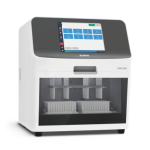
ZYBIO NUCLEIC ACID AUTO EXTRACTOR S/N nu:
⮚ MACHINE SPECIFICATION:
● Analytical method Magnetic bead method
● Throughput 1-32 samples
● Process volume 30 – 1000 µl
● For virus detected take time 9 mins.
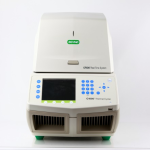
BIO-RAD CFX 96 TOUCH THERMAL CYCLER REAL TIME PCR DETECTION SYSTEM S/N nu: 787BR10301
⮚ MACHINE SPECIFICATION:
● The CFX96 touch system is a powerful, precise, and flexible real time PCR detection.
● Samples capacity 96 wells at once.
● Sample size 1 – 50µl (10 – 25 recommended)
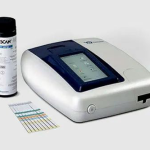
URISCAN OPTIMA (URINE ANALYSER) S/N nu: UD-60911674
⮚ MACHINE SPECIFICATION:
● It’s a semi-automated urine analyzer.
● Memory capacity 1,000 tests.
● Analyze method Reflectance photometers.
● Test capacity: Routine mode 36 samples/hour.
Quick mode 300 samples/hour.
● Measureable time: Routine mode 100 seconds.
Quick mode 6 seconds.
● Memory capacity 2000 patients data.
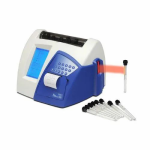
MIX-RATE X20 ERYTHROCYTE SEDIMENTATION RATE S/N nu: 19-12040
⮚ MACHINE SPECIFICATION:
● Holding up to 20 samples with capability of performing up to 80 ESR tests per hour.
● Reading time 15 mins.
● Excellent correlation with the manual Westgren method.
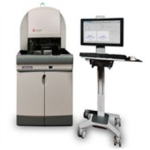
FULL AUTOMATED UniCel DXH-800 CELL COUNTER (HAEMATOLOGY ANALYZER) S/N nu: BD03129
⮚ MACHINE SPECIFIACTION:
● The UniCel DXH-800 analyzer is quantitative, automated haematology analyzer for in vitro diagnostics use.
● Analyzing method Coulter method.
● Throughput up to 100 samples/hour
● Samples aspiration volume 165 µL.
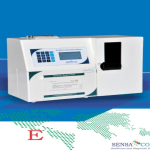
SEMI-AUTOMATED ST-200 PLUS ELECTROLYTE ANALYZER S/N nu: ST-7250
⮚ MACHINE SPECIFICATION:
● The ST-200 plus electrolyte analyzer is a Semi-automated analyzer are specifically designed to meet the needs to small to medium sized laboratories by inventing and developing the latest technology. Extremely low cost per test.
● Sample volume 150 µL.
● Measuring time 60 sec.
● Sample type Whole blood, Serum, Plasma, CSF, Diluted urine(1:5).
● Parameters included Na, K, Ca, Cl, Li, pH.
● Throughput 55tests per hour.
● Analytical principle Direct measurement with ISE.
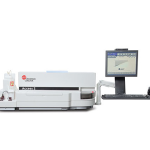
FULL AUTOMATED IMMUNO ASSAY ANALYZER ACCESS-2 S/N nu: 572200
⮚ MACHINE SPECIFICATION:
● The Access 2 contains the robustness of a reference laboratory immunoassay analyzer in the convenient size, providing greater control over performance, reliability and speed without sacrificing valuable laboratory space.
● Throughput of up to 100 tests per hour.
● Loading capacity 60 samples at once.
● Random access for running any combination of samples any time.
● Rapid kinetics for improved turnaround time.
● Stat and automatic reflex testing
● Onboard refrigerated storage of up to 24 hours.
● Utilizes Proven chemiluminescent and magnetic particle separation technology.
● Sample type Serum, Plasma, Urine, Amniotic fluid, Whole blood.
● Sample volume 10-100 μl.
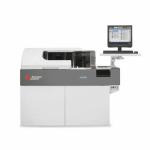
FULL AUTOMATED BIOCHEMISTRY ANALYZER BECKMEN COULTER AU-480
⮚ MACHINE SPECIFICATION:
● The AU480 is the ideal primary chemistry analyzer to small to medium sized hospitals and laboratories, or as a dedicated specialty chemical or stat analyzer for larger institutions.
● Analytical principal Spectrophotometry and potentiometry.
● Analytical methods Colorimetry, Turbidimetry, Latex agglutination, Homogeneous EIA, Indirect ISE.
● Its throughput is up to 400 photometric test per hour(up to 800 with electrolytes).
● Increased onboard testing, reduced sample volume and user friendly operation.
● Sample volume need 1 – 25 μl in 0 .1 μl steps.
● Samples integrity Lipaemia, Haemolysis and Icterus analysis.
● Samples types Serum, Plasma, Urine, other.
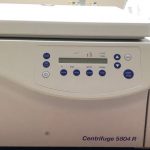
The high speed advanced centrifuge
A centrifuge is a mechanical or electromechanical device used to separate various components of a liquid. It achieves that by simulating a very high gravity environment inside the tubes by producing centrifugal forces by spinning very fast.
At I3T our laboratory is equipped with Centrifuge 5804R by eppendorf, which is an advanced high-speed benchtop centrifuge. Centrifuge 5804/5804 R is suitable for medium-throughput molecular biology applications. It handles all common tube formats from 0.2 mL to 250 mL as well as plates, offering a high versatility acknowledgement to a broad range of rotors and adapters.
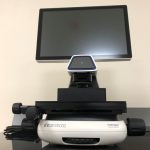
Advanced Imaging system
At I3T our cell culture laboratory is equipped with EVOS M5000 imaging system by invitrogen. Thermo Fisher Scientific.
The EVOS M5000 microscope is a workhorse for cell imaging labs across a broad range of applications and imaging requirements. It is a fully integrated digital inverted bench top microscope with a high-resolution CMOS monochrome camera capable of four-color fluorescence, transmitted light, and color applications, the EVOS M5000 delivers publication-ready images in seconds with minimal personal contact. With a five-position objective turret and the ability to acquire images in four fluorescence channels, transmitted light phase-contrast, and color, the optical system can be easily configured.
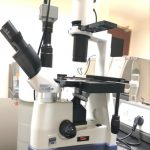
Phase contrast microscope
Phase contrast is a light microscopy technique used to enhance the contrast of images of transparent and colourless specimens. It enables visualisation of cells and cell components that would be difficult to see using an ordinary light microscope. As phase contrast microscopy does not require cells to be killed, fixed or stained, the technique enables living cells, usually in culture, to be visualised in their natural state. This means biological processes can be seen and recorded at high contrast and specimen detail can be observed. Fluorescence staining can be used in combination with phase contrast to further improve the visualisation of samples.
At I3T our cell culture laboratory has a Metzer – M trinocular tissue culture microscope - 6000 TTCM (star), which is an inverted phase contrast microscope, allows us to examine the culture of live cells.
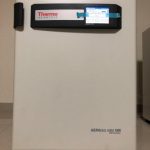
CO2 Incubator
A CO₂ incubator plays an important role in maintaining a cell culture’s sterility, temperature, humidity, and pH—parameters that are to maintain the culture’s viability. CO2 incubator is an essential requirement for growing mammalian cells in an artificial environment.
Cell culture is one of the major tools used in cellular and molecular biology, providing excellent model systems for studying the normal physiology and biochemistry of cells (e.g., metabolic studies, aging), the effects of drugs and toxic compounds on the cells and mutagenesis and carcinogenesis. It is also used in drug screening and development and large scale manufacturing of biological compounds (e.g., vaccines, therapeutic proteins).
Our cell culture laboratory facilitated by the Thermo Scientific™ Heracell™ VIOS 160i CO2 Incubator, which is designed to maintain a constant temperature and high humidity for the growth of tissue culture cells under a CO2 atmosphere.
The conditions we generally maintained at this facility are 5% CO2 , pH 7.4, 98.6°F (37°C) temperature, and > 90% relative humidity.
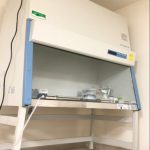
Biosafety cabinet (BSC)
The term biosafety cabinet have been widely used to describe a variety of containment devices equipped with HEPA filter(s), designed to provide personnel or both personnel and product protection from biohazardous materials. The terms should only be applied to those devices that meet the requirements of Class I, II, or III specifications, based on their construction, airflow velocities and patterns, and their exhaust systems.
A feature unique to BSC Class II cabinets is a vertical laminar (unidirectional) HEPA-filtered air stream that descends downward from the interior of the cabinet. This continuously flushes the cabinet interior of airborne contaminants and protects samples being handled within the cabinet from contamination and is known as the downflow.
Our cell culture laboratory equipped with Thermo Scientific™ 1300 Series Class II, Type A2.
The Class II Type A2 that has a negative pressure surrounding the positively pressurized contaminated plenum. In case there is a leakage on the positive plenum, the leaking aerosol will be pulled by the negative pressure back to the positive plenum, and it will not leak out. In the A2 cabinet, about 70% of air from the positive plenum is recirculated as downflow, and the remaining 30% is discharged to the lab through the exhaust filter.

Biosafety level 2(BSL 2)
Biosafety level or BSL is a set of biocontainment precautions required to keep the biohazards under control.
Biosafety Level 2 (BSL-2) is suitable for work involving agents that pose moderate hazards to personnel and the environment. Generally, agents handled at this level have vaccines or therapies readily available and are not an inhalation exposure risk under routine handling conditions.
Because of these features, a standard lab space with procedures and equipment in place that minimize the potential for personnel to have dermal or mucous membrane contact with contaminated materials is the basis of this biosafety level.
Containment emphasis is on safe sharps handling techniques and minimizing the spread of contamination to lab surfaces, including the use of a biological safety cabinet (BSC) for aerosol- generating procedures.
Although newly constructed BSL-2 labs are expected to have inward airflow, escape of contaminants outside of a BSL-2 lab will most likely result from a break in defined work practices.
At I3T we have advanced BSL 2 facilities which suitable for work involving agents of moderate potential hazard to personnel and the environment.
